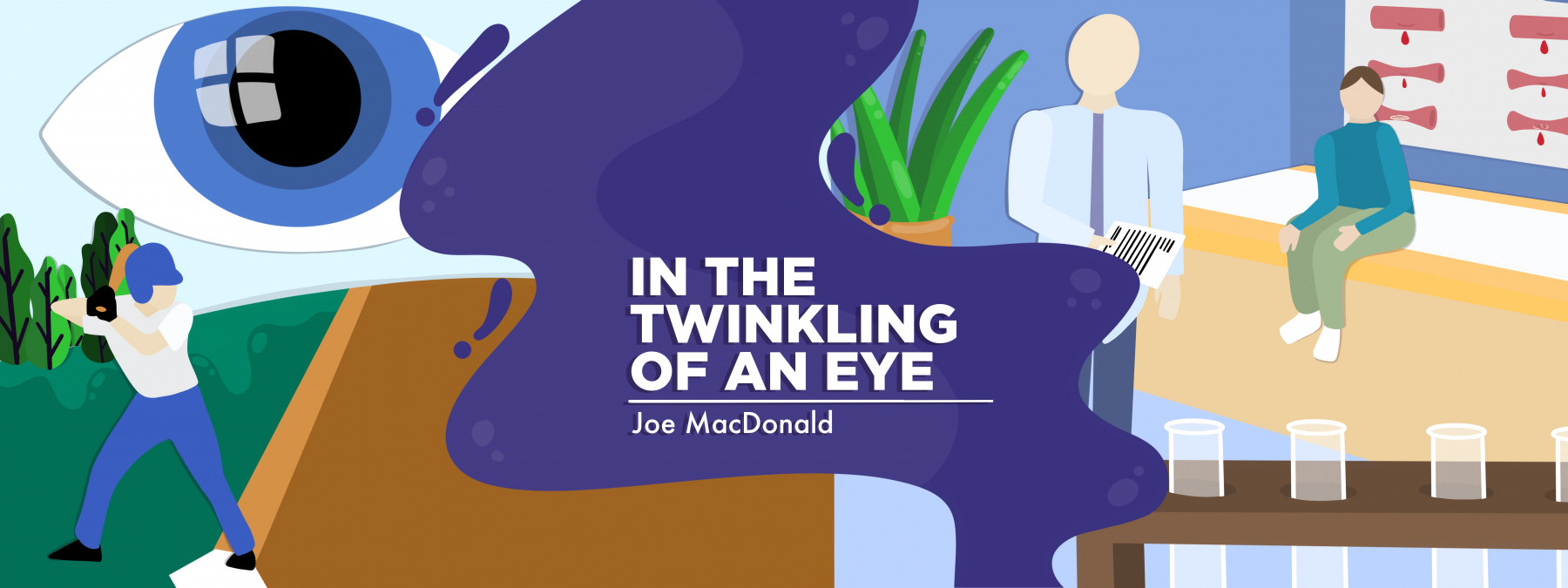My Boy Learned a Lesson by Playing Baseball

When my youngest son was 4, he wanted to play baseball.
My nerves were shaky as I took him to register for the fall season. I hoped he would enjoy playing the sport. When the first game of the season rolled around, my wife and I sat in the bleachers, ready to cheer on our mighty warrior.
I beamed with pride when he hit the ball. Although he didn’t hit it past the pitcher’s mound, I still stood up and shouted for my son.
As my stinky boy ran as fast as he could to first base, I saw something that made my heart sink. He had trouble running. His ankle didn’t feel good.
When he told me that his ankle felt buzzy, I knew what he meant. He was having an internal bleed right in the middle of the game.
He made it to first base, but when the next batter hit the ball and ran for first base, my son’s right ankle started swelling, and the pain he felt made it impossible for him to continue running to second base.
I ran to the dugout and asked the coach to call a timeout. He did, and I flew to my son’s side and let him ride piggyback on my shoulders. I had to get him out of the situation because he could not bear the pain he felt. He later told me that an internal bleed feels like needles constantly throbbing into his joint. My heart sank, as I could not imagine what it felt like to suffer from his medical condition.
My wife and I loaded my boy into the car and drove two hours to the hospital in Albuquerque, New Mexico. The hematologist on call admitted “MacDonald the Younger” into the hospital to aggressively treat him for both the pain and the bleed. It took two weeks for the treatment to resolve the issue.
We talked with the leader of our medical team, Dr. Shirley Abraham, and she told us that it would be in my son’s best interest if he did not play baseball. She explained that the pressure placed on his joints would most likely lead to further harrowing bleeding episodes. We knew that the cost of letting him play was not worth the risks.
We thanked the doctor for her very candid conversation with us, and my wife and I went on a dinner date to discuss my son’s wishes to play baseball with his friends. We decided that, for now, the reason he would not play anymore was that the season had ended.
Later, as he grew older and began to understand his medical issues, the explanation would change. At that point, a 4-year-old boy didn’t need to hear that something didn’t work right with his body. I didn’t want to run the risk of him having a distorted body image.
At the proper age, he would learn about possible limitations due to hemophilia. At 4, he knew he needed to go to the hospital to give his blood muscles. We felt that was more than enough for a small guy to understand.
Looking back, I discovered that when my son realized something wasn’t right, it affected me greatly. Part of me wanted to pretend that he wouldn’t feel the effects, although he had a bleeding disorder. I was living in a state of denial, and with that one bleed, my worldview changed. I had to face facts and focus on maintaining my son’s overall health, both mentally and physically.
As parents, we do the best we can with what we have at our disposal. But as life moves along, we change to adapt to new situations and new ways of helping our babies grow into incredible men and women.
I failed to realize the amount of growth I would experience as I raised my stinky sons. But I always wanted my boys to know that their dad would remain there to carry them piggyback if needed through every step of the journey.
***
Note: Hemophilia News Today is strictly a news and information website about the disease. It does not provide medical advice, diagnosis, or treatment. This content is not intended to be a substitute for professional medical advice, diagnosis, or treatment. Always seek the advice of your physician or another qualified health provider with any questions you may have regarding a medical condition. Never disregard professional medical advice or delay in seeking it because of something you have read on this website. The opinions expressed in this column are not those of Hemophilia News Today or its parent company, Bionews Services, and are intended to spark discussion about issues pertaining to hemophilia.








Leave a comment
Fill in the required fields to post. Your email address will not be published.